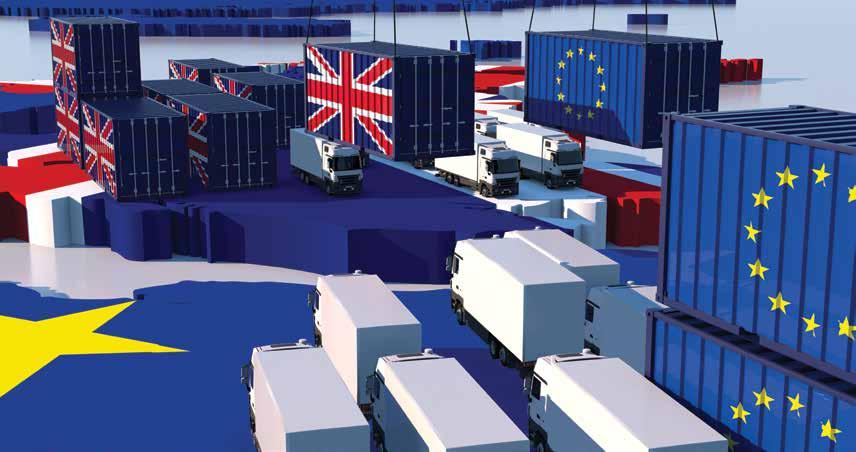
1 minute read
BRITISH MANUFACTURING
Kerry Haywood speaks to a selection of British manufacturers to discover the impact of Brexit, the pandemic and global logistics and what that means for turfcare innovation.
Cresco has been importing and distributing spreaders since the 1970s and, over the years, have seen it all. Director Marcus Palmer told us about the challenges they have faced.
In February 2016, David Cameron set the date of the EU referendum to be 23rd June that year. From that date, multiple macro-economic factors affected us so dramatically that we had to rethink and reinvent our business. A hidden effect of the decision to hold a referendum was the devaluation of £ Sterling by 20%, effectively increasing cost prices of imported goods.
We have faced the Brexit challenges which have been magnified with the Covid pandemic, global logistics issues and the more recent Russia/Ukraine conflict driving inflation. At no time since WWII have we encountered such a difficult period to be in business.

Brexit has undoubtedly had a considerable impact on our manufacturing processes, with changes in trading relationships, regulations and supply chains. We have had to grapple with increased customs checks, tariffs and non-tariff barriers, leading to delays and higher costs. These challenges forced us to adapt and innovate, seeking alternative supply sources and distribution channels.
With the development of the CRESCO product range, we implemented strategic changes to minimize disruptions and maintain competitiveness in the market. We focused on establishing strong relationships with international suppliers and investing in research and development, showcasing resilience in the face of Brexit-related challenges.
COVID-19 further complicated our situation. Lockdowns, social distancing measures and reduced demand in various industries led to disruptions in production and distribution. We pivoted and adapted our operations to ensure the safety of our employees while maintaining productivity.
Our agile response to the pandemic involved quickly implementing safety protocols, adopting remote working where possible, and reconfiguring production lines to cater to shifting market demands. This proactive approach enabled us to navigate pandemicrelated challenges and maintain a strong presence in the industry.
Global logistics played a significant role in shaping our manufacturing landscape. The pandemic highlighted vulnerabilities in global supply chains, prompting us to reassess our logistics strategies. Faced with shipping delays, capacity constraints and increased freight costs, we re-evaluated our reliance on American suppliers and prioritised other international sourcing where possible.
We adapted by investing in digital technologies to streamline our supply chain management and enhance visibility. This focus on innovation and agility allowed us to better navigate the complex global logistics landscape and continue to deliver quality products to our customers. By embracing change and prioritising strategic investments in technology and international partnerships, British manufacturers can continue to thrive and contribute significantly to the UK's economic growth.










